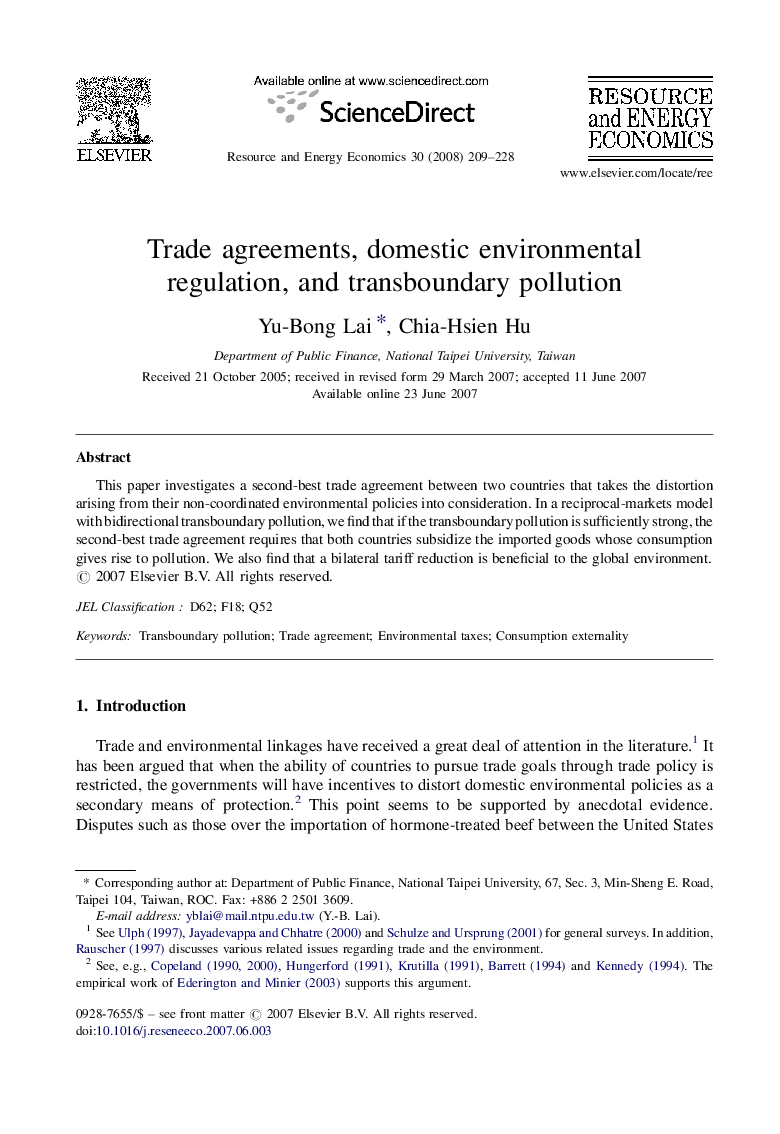| Article ID | Journal | Published Year | Pages | File Type |
|---|---|---|---|---|
| 986054 | Resource and Energy Economics | 2008 | 20 Pages |
Abstract
This paper investigates a second-best trade agreement between two countries that takes the distortion arising from their non-coordinated environmental policies into consideration. In a reciprocal-markets model with bidirectional transboundary pollution, we find that if the transboundary pollution is sufficiently strong, the second-best trade agreement requires that both countries subsidize the imported goods whose consumption gives rise to pollution. We also find that a bilateral tariff reduction is beneficial to the global environment.
Related Topics
Physical Sciences and Engineering
Energy
Energy (General)
Authors
Yu-Bong Lai, Chia-Hsien Hu,
